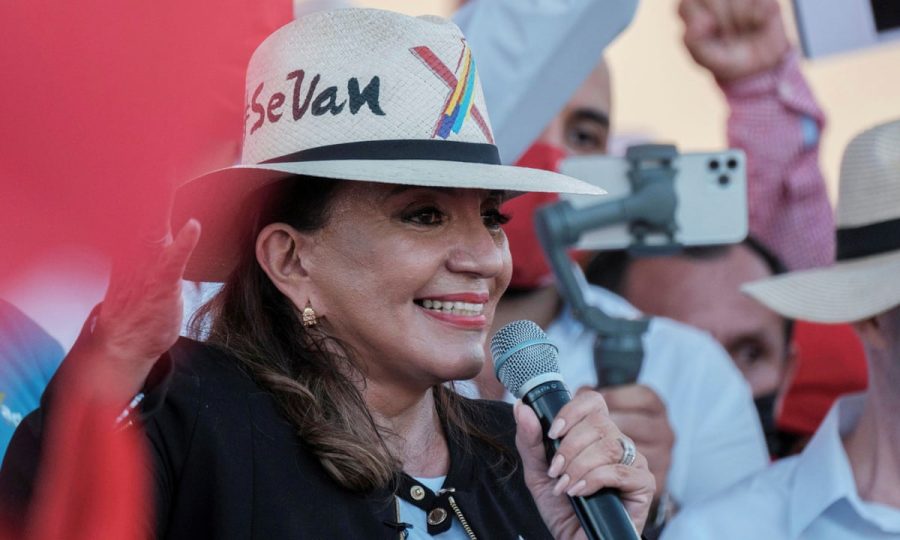Honduras Elects Its First Female President: Xiomara Castro
Xiomara Castro, presidential candidate for the opposition Libre party speaks during a rally in San Pedro Sula, Honduras. Photograph: Yoseph Amaya/Reuters
March 7, 2022
On January 27, 2022, Honduras inaugurated its first female president, Xiomara Castro. Castro is a leftist politician, who’s a member of the Liberty and Refoundation party. Not only did she receive the largest number of votes in the country’s history with a 51% majority over right-wing National Party opponent Nasry Asfura; her historic win ended the 12-year right-wing National Party governance. Castro’s victory indicates a promising new era for Honduran citizens, despite internal political conflict over the victory.
Political Turmoil Over Election
Castro’s win ends the controversial 8 year reign of President Juan Orlando Hernández. During his eight-year presidency, “corruption has soared, and organized crime has rose to the highest levels of government,” according to NPR Correspondent Carrie Kahn. There were “allegations of drug trafficking at the highest levels of government,” and he faces charges of corruption in U.S. courts. Castro’s presidency already faced a controversial start, as there were disputes over who would make up her congress.
Salvador Nasralla, a popular opponent, agreed to drop his presidential bid and support Castro’s victory — if “she promised leadership of Congress to a lawmaker from his Savior Party.” A few days before Castro was sworn in, “Luis Redondo of Libre’s alliance partner, the Savior Party of Honduras (PSH),” was nominated to be the leader of Congress. A nomination that was previously decided, and met the demands of Salvador Nasralla. However, Savior opposers insisted Congress be led by the party with the most members, because “Libre has 50 deputies compared to just 10 for the Savior party.” So, they “named one of their own, Jorge Calix, as Congress president in a ceremony at a private venue.” Castro called the rebellion a “betrayal” and refused to accept Calix.
Castro’s Promises
Castro campaigned on improving healthcare, education, and improving the standard of living for Hondurans. “The economic catastrophe that I’m inheriting is unparalleled in the history of our country,” said Castro in her inaugural speech, “My government will not continue the maelstrom of looting that has condemned generations of young people to pay the debt they incurred behind their back.” In recent years, Hondurans have left the country in record numbers. To combat this, she has committed herself to ending corruption, poverty, and inequality. “Two hundred years have passed since our independence was proclaimed. We’re breaking chains and we’re breaking traditions.”










